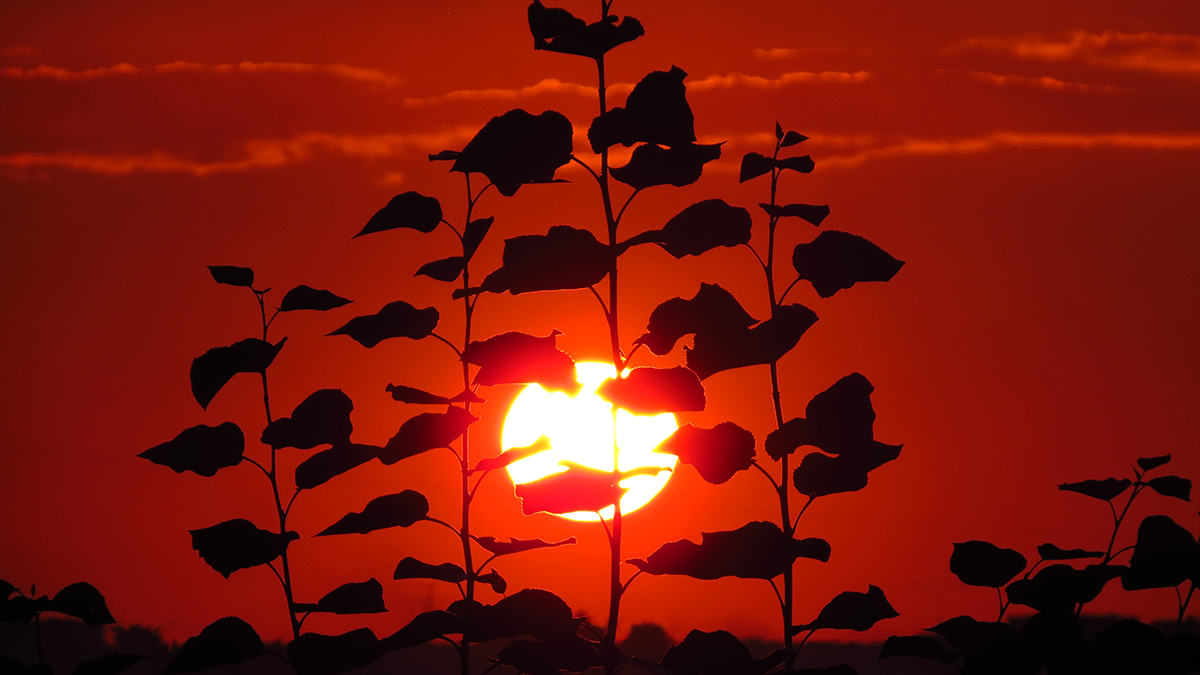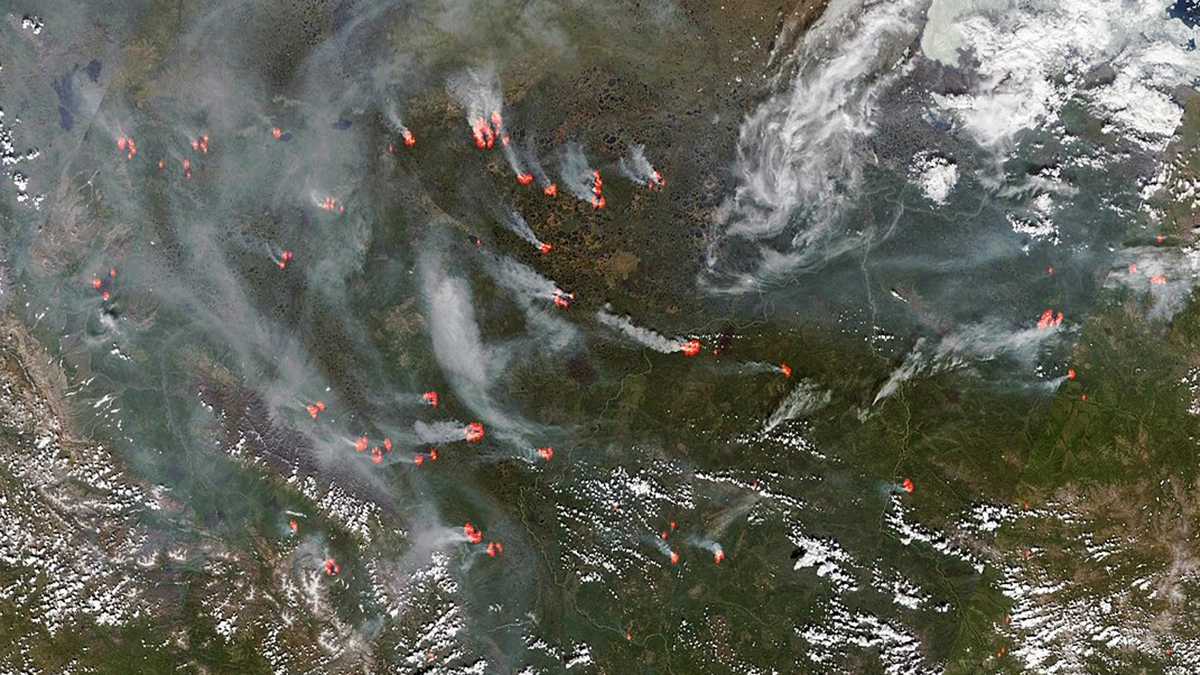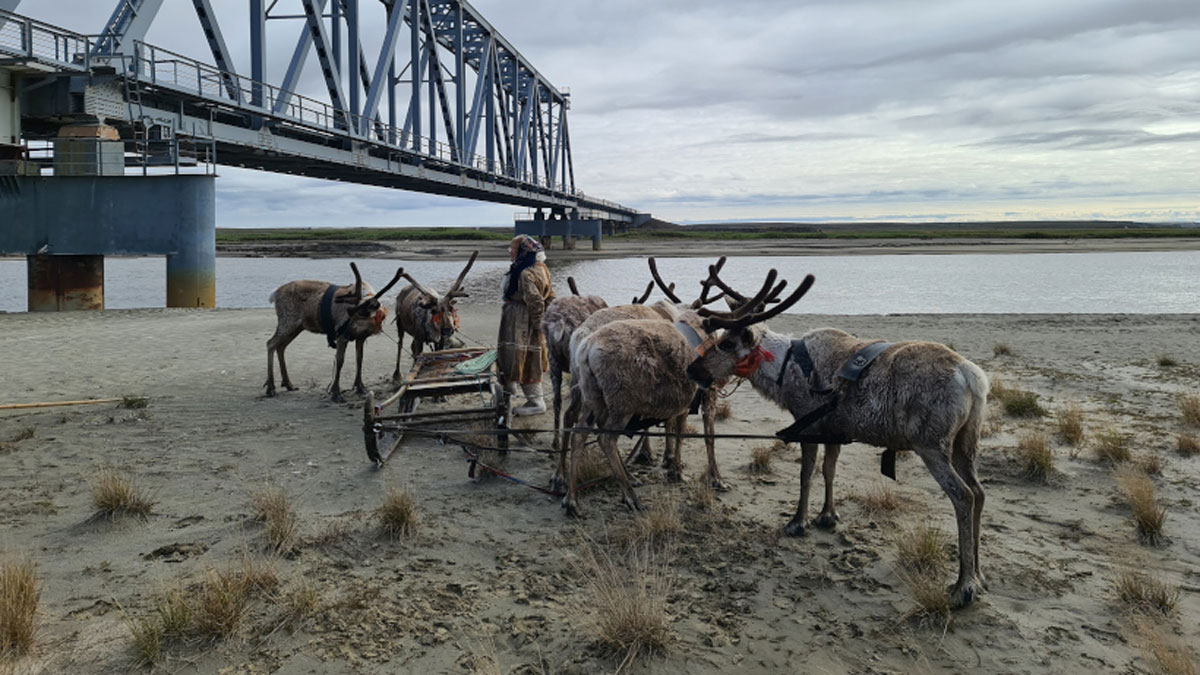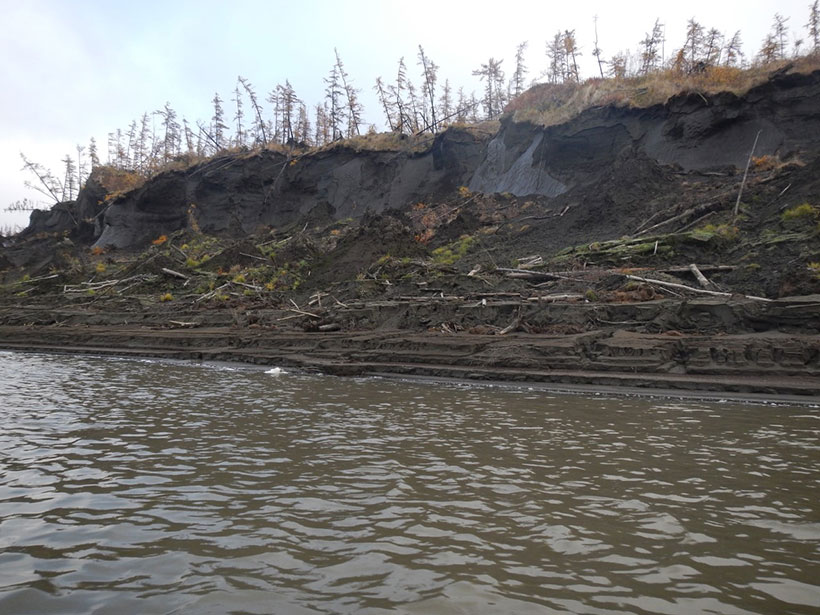The aftermath of a historic 2020 heat wave could still be felt in Siberia a year later.
Siberia
Arctic Warming Is Driving Siberian Wildfires
Increased temperatures and drought are leading to more wildfires. And wildfire smoke aerosols can suppress precipitation, drying out soils and further increasing fire risk.
Convergence Science in the Arctic
Focusing on climate change and industrialization in Siberia’s Yamal Peninsula, researchers developed science questions that aim to reach far beyond any single discipline.
Минимальные свидетельства наличия углерода вечной мерзлоты в реке Колыме в Сибири
Новое исследование показало, что арктические реки в настоящее время переносят ограниченное количество растворенного органического углерода из вечной мерзлоты, что имеет значение для понимания изменения углеродного цикла в регионе и его потенциальной возможности ускорить изменение климата.
Last Tree Standing
Refugia repopulate forests after fires, but climate change is making these woodlands increasingly unpredictable.
Melting Sea Ice May Mean the End of Driftwood in Iceland
Driftwood floats thousands of kilometers from Siberia to Iceland, but it may drift no longer by 2060 due to climate change.
Minimal Evidence of Permafrost Carbon in Siberia’s Kolyma River
New research finds that Arctic rivers currently transport limited permafrost-derived dissolved organic carbon, which has implications for understanding the region’s changing carbon cycle—and its potential to accelerate climate change.
Irtysh River Drove Arctic Sea Ice Expansion 3 Million Years Ago
The Siberian river’s creation caused a massive influx of fresh water into the Kara Sea and radically changed the Arctic Ocean and Earth’s climate.
Siberian Heat Wave Nearly Impossible Without Human Influence
A new study finds that the exceptional temperatures seen in Siberia in the first half of 2020 would have been extremely unlikely without anthropogenic climate change.










